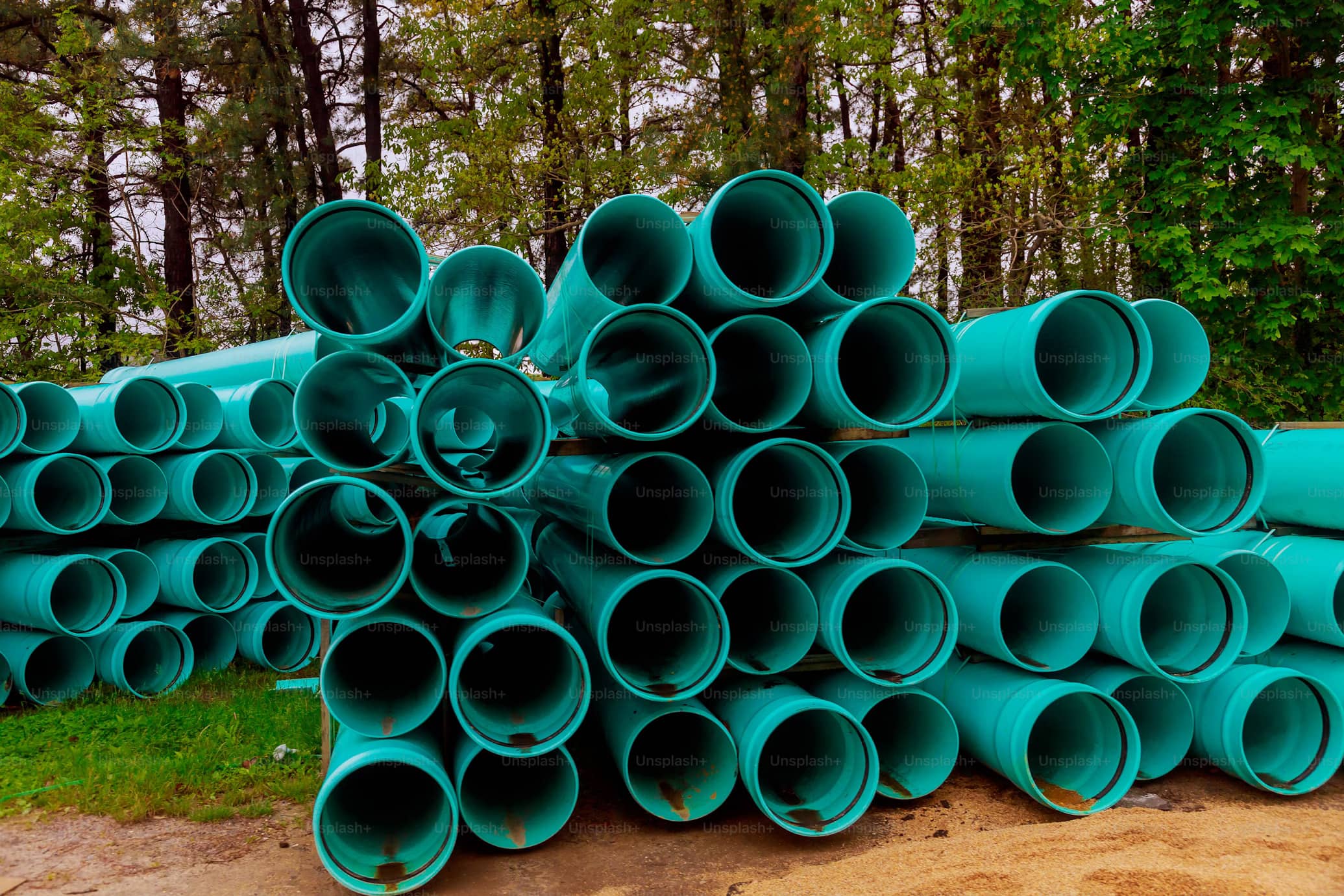The Chemical Resistance of PVC Pipes: 5 Must-Know Facts

Strength and durability are two of the most important properties you need in your materials. Whether you’re managing an infrastructure project or running an industrial site that handles chemicals, PVC pipe fittings must be at the top of your materials list.
In our years of working with various industries, we have found polyvinyl chloride (PVC) to be one of the most widely used thermoplastics in piping applications, with more than 50% usage in construction globally. It’s economical, easy to assemble, and resistant to a wide array of chemicals, making it suitable for various operations. It has been and continues to be the preferred material for industrial and water treatment, construction, infrastructure, and civil projects in the UAE.
Facts About the Chemical Resistance of PVC Pipes
The chemical resistance of PVC pipes is due to its thermoplastic material, making it ideal for industrial plating, chemical processing, and chemical drainage.
A few factors can affect the reaction of PVCs to chemicals, namely:
- Concentration of chemicals
- Chemicals present
- Frequency of exposure
- Duration of exposure
- Temperature
To evaluate the suitability of PVC pipes to your operating environment, consider the following information.
1. PVC piping is compatible with non-reactive chemicals.
PVC pipes are resistant to the following non-reactive chemicals:
- Ammonium salts
- Acetylene
- Ammonia
- Antifreeze
- Various alcohols
PVC pipes are also compatible with inorganic acids, alkalis, fats, oils, salts, and aromatic-free petrol. De-ionized water and distilled water also have no effect on PVC pipes.
2. PVC pipes come in different variants, designed for different applications.
The chemical resistance of PVC pipes will vary according to its variant.
PVC has four variants: chlorinated polyvinyl chloride (CPVC), molecular-oriented PVC (PVCO), unplasticized PVC (PVC-U), and plasticized PVC.
PVC-U has no plasticizer, making it rigid. It’s one of the most common sewage and underground drainage pipe materials, even replacing the more expensive cast iron in gutters and downpipes. Due to its high chemical resistance and resistance to UV exposure, you’ll see it in industrial applications. This type of PVC is also flame-resistant, which is why it can work as electrical insulation.
Made with chlorinating resin, CPVC is commonly applied in indoor settings. It’s resistant to caustics, salts, acids, and most corrosive chemicals. Without pH limitation, CPVC can withstand large pH swings without damage.
Its high chemical and temperature resistance makes it fitting for multiple industries, including:
- Mineral processing
- Food and beverage
- Power generation
- Metal finishing
- Chemical processing
PVC-O, meanwhile, is a product of turning the amorphous structure of PVC-U into a layered one. This PVC variant is impact- and fatigue-resistant, stiff, and lightweight. It’s suitable for sewer pumping mains, irrigation, and other buried, non-potable applications.
Plasticized PVC, on the other hand, is non-flammable and flexible, making it an ideal material for transporting corrosive inorganic substances, alkalis, and acids.
3. Plasticizers in PVC have an effect on its chemical resistance.
PVC–U generally has better chemical resistance than plasticized PVC. How the material reacts to chemicals will depend on the type and amount of plasticizer in the PVC. Manufacturers add plasticizers in PVCs to make them softer and more flexible.
4. High temperatures accelerate chemical reactions in PVC pipes.
PVC pipes have a low melting point at 212°F (100°C), with a maximum operating temperature at 140°F (60°C). When your application requires exposure to high temperatures, it is advisable to run preliminary tests of the PVCs to ensure their suitability for harsher chemical environments.
Routine checks and a maintenance plan can also ensure the integrity of your PVC piping system when you expect exposure to higher temperatures.
5. Some substances affect the chemical resistance of PVC pipes.
It’s not advisable to use the following harsh chemicals and solvents with PVC piping systems:
- Ketones
- Nitro compounds
- Aromatic and chlorinated hydrocarbons
- Esters and ethers
- Acetone
These substances will penetrate the PVC pipe, causing the material to soften and swell. The substances may also affect the material’s tensile strength, leading to stress cracking or dissolution.
The continuous exposure and high concentration of certain chemicals, like sulfuric acid, also affect the integrity and durability of PVC pipes. We recommend further testing to determine the PVC’s durability when your operating environment requires exposure to high temperatures and contact with high concentrations of certain chemicals.
Choose the Right PVC, Ensure Safety and Reliability
Understanding the chemical resistance of PVC pipes can significantly impact your projects’ efficiency, safety, and longevity. Their broad chemical compatibility, non-reactive nature, resistance to environmental stress cracking, and cost-effectiveness make them invaluable in various industrial applications.
Choose the right PVC pipe manufacturers in the UAE, and you’ll invest in reliable, durable, and safe solutions for your piping needs.
Discover the strongest, most reliable PVC piping products from Polyfab. As the preferred PVC pipe supplier in the UAE, we offer a range of solutions for supplying gas, energy, and drinking water, sewage disposal and rainwater drainage, and sanitation and heating technology.
Fill out our short form today for inquiries.
We're here to help
Let our specialists help you find the right piping products for your needs. Get access to expert services and top-of-the-line supplies for quality, on-time, professionally delivered projects. Get in touch with the Polyfab team today.
